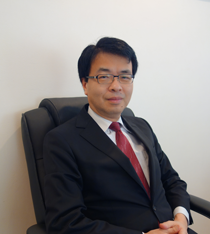[世話人ご挨拶/Greetings from the Organizer]
世話人ご挨拶/Greetings from the Organizer
 |
|
ヒトに対して無作為割り付け2重盲検試験(randomized controlled trial, RCT)が一部の病態で報告されていますが、医薬品・医療機器として開発トラックに乗った確認臨床試験はまだ進行中です。ヒトに対してはオープンラベル研究も行われていますが、RCTと異なりプラセボ効果を否定できません。探索的な研究であってもRCTの手法を用いて、科学的な批判に耐えうる研究を我々は推進していく必要があります。
水素は科学的な事実の解明と並行してマーケットが形成されるという他には見られない現象が起きております。このような背景が原因だと思いますが、水素ニセ科学説がメディア上で流布されています。我々は水素の分子作用機構を十分に解明できておりませんし、ヒトに対する効果検証もまだ不十分です。しかし、特定保健用食品(トクホ)の多くと比べても、水素は科学的な実証研究が進んでいます。我々アカデミアの努力と成果を正確に評価していただくことを願っております。ピアレビューに基づく研究成果発表を精読することなく、水素をニセ科学と批判することは科学的事実の捏造と同じく人類の智慧の蓄積と活用を阻害します。本学会が水素研究の新次元への展開につながることを願っております。
第7回分子状水素医学生物学学会代表世話人
大野 欽司(名古屋大学大学院医学系研究科・神経遺伝情報学教授)
In June 2007, Professor Shigeo Ohta and
colleagues at the Nippon Medical School reported an astonishing effect of
hydrogen gas on an animal model of cerebral infarction. This article prompted
us to seek for the effect of molecular hydrogen in various diseases. Professor
Masatoshi Ichihara at the Chubu University summarized that 377 original
articles and 49 review articles on hydrogen have been reported in scientific
journals up to the end of April 2016. Most articles show the effects of
hydrogen water, hydrogen gas, and hydrogen saline on model animals and human
diseases, and only a few of them address the molecular mechanisms. Even now,
the exact molecular mechanisms of molecular hydrogen have not been explicitly
proven. Elucidation of the mechanisms will enable us to explain why a small
amount of hydrogen exerts beneficial effects, although a large amount of
hydrogen is produced in our intestine. Similarly, we will be able to understand
for which diseases hydrogen should be used and for which diseases hydrogen
should not be used.
Double-blinded
randomized controlled trails (RCT) have been reported in some human diseases.
However, only exploratory RCT have been published, and confirmatory RCT to seek
for governmental approval are currently in progress. Open-label trials are also
reported in some diseases, but a possibility of the placebo effects cannot be
negated with open-label trials. RCT is a minimum requirement to convince
ourselves that hydrogen is effective for specific diseases.
Unlike
other molecules or compounds, the hydrogen research goes on along with the
formation of a hydrogen market. Hydrogen research is sometimes erroneously
discriminated as pseudoscience. We have not yet proven the exact molecular
mechanisms of the hydrogen effect and confirmatory clinical trials are still
underway. However, compared to most foods for specified health uses (FOSHU or
Tokuho in Japanese), which are widely avaialble domestically or worldwide, the
effects of hydrogen have more scientific backgrounds. We hope that our efforts
to prove the molecular bases of the hydrogen effect and to prove the effects of
hydrogen on human diseases are properly reviewed. I believe that ignorance of
scientific evidence without scrutinizing our scientific papers is equivalent to
the fabrication of scientific data. Scientific misconduct will mislead and
prevent utilization and application of the human knowledge that has been accumulated
since the dawn of science. I hope that this meeting will facilitate advancement
of our scientific achievements on molecular hydrogen.
Kinji Ohno, MD, PhD
Professor of Neurogenetics
Nagoya University Graduate School of Medicine
Chair of The 7th Meeting of The Japanese Biomedical Society for Molecular
Hydrogen
